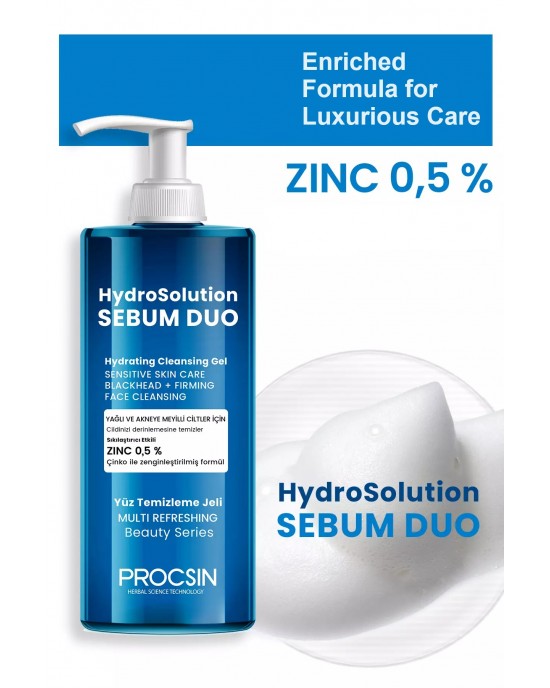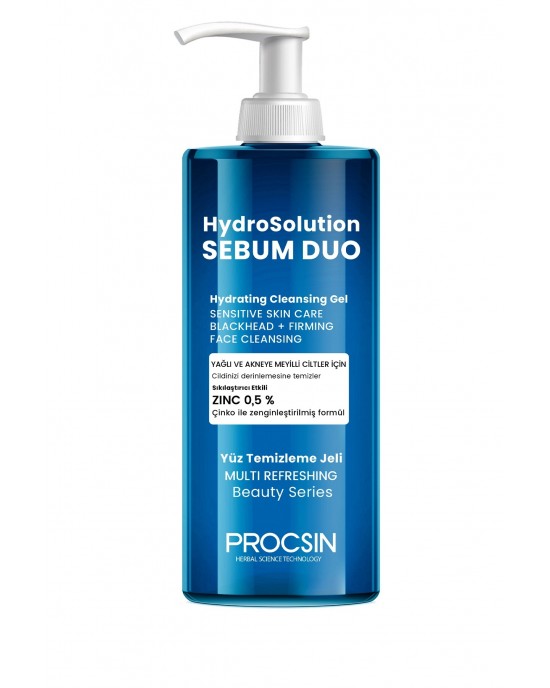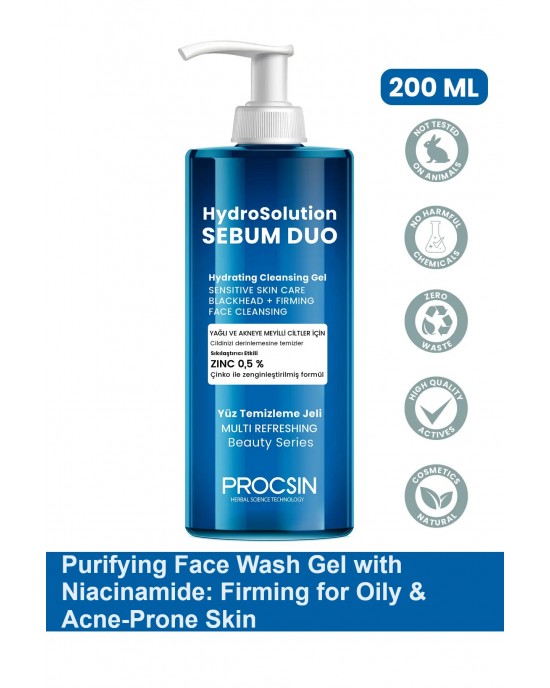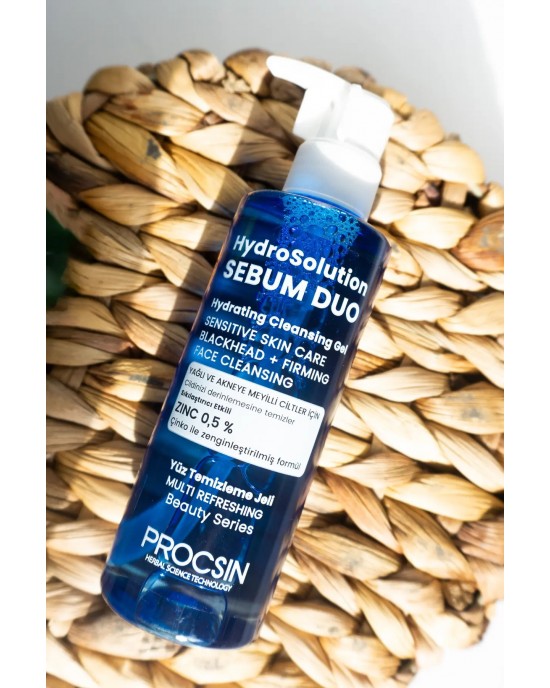-
Natural Ingredients: Tailored for a powerful yet gentle facial cleanse.
-
Oil Balancing: Perfect for those with oily-skin tendencies.
-
Radiant Complexion: Say hello to a vibrant, soft, and illuminated skin.
-
Invigorating Scent: Feel refreshed with every use.
-
Moisturizing Effect: Keeps skin hydrated without feeling greasy.
-
100% Vegan, Cruelty-Free, Not tested on Animals, No harmful chemicals, Zero Waste
- Stock: In Stock
- Brand: PROCSIN
- Model: FP.01.01.010.021
PROCSIN Hydrosolution: Ultimate Anti-Acne and Oil-Balancing Facial Cleansing Gel Vegan (200 ML)
PPROCSIN Hydrosolution - Your Pathway to Acne-Free, Balanced Skin
Main Benefits:
Introducing PROCSIN Hydrosolution, a facial cleansing gel formulated with the purest natural ingredients. Beyond cleansing, it aims to maintain the skin’s natural moisture, preventing it from drying out. Its content rich in zinc supports targeting blemishes, paving the way for a cleaner and more vibrant skin appearance. After cleansing, feel your skin’s refreshing transformation, setting an ideal base for other skincare products.
Dive Deep into the Key Ingredients of PROCSIN Hydrosolution
Benefits of Zinc: Zinc is crucial for maintaining skin health. It accelerates wound healing, reduces inflammation, and plays a significant role in controlling acne breakouts. A trusted study by the National Institutes of Health showcases how zinc acts as a potent inhibitor of inflammatory cytokines, making it an essential component in this gel.
(Note: The product description only mentioned zinc explicitly. For other specific ingredients, additional information would be required.)
-
Natural Cleansing: PROCSIN Hydrosolution is not just another facial cleanser; it's a blend of nature and science. Each ingredient is chosen to offer a gentle yet effective cleanse, especially for oily skin.
-
Balancing Act: Struggle with excessive facial oil? This gel balances it out without stripping your skin of essential oils.
-
Acne Management: Ingredients like zinc work tirelessly to keep acne at bay, offering you clearer skin day after day.
-
All-Day Hydration: While most cleansers leave your skin feeling dry, our product ensures that your face remains moisturized and hydrated.
Frequently Asked Questions & Answers:
-
Q: Can I use PROCSIN Hydrosolution daily? A: Absolutely! It's formulated for both morning and evening skincare routines.
-
Q: Is it suitable for sensitive skin? A: Yes, its natural ingredients aim to offer a gentle cleanse, making it suitable for sensitive skin.
-
Q: Does it have a strong scent? A: It has an invigorating scent that leaves you feeling refreshed, but not overpowering.
-
Q: Can it help reduce my acne? A: With regular use and its zinc content, it aims to manage and reduce acne.
-
Q: Will it leave my skin dry? A: No, one of its main benefits is to keep your skin moisturized post-cleanse.
-
Q: How much gel should I use in one application? A: Use as much as you feel necessary to cover the face, a small amount usually goes a long way.
How To Use: Dampen your hands and face slightly with water. Apply the necessary amount of gel and massage it onto your face. Rinse thoroughly after application. It's ideal for morning and evening skincare routines.














